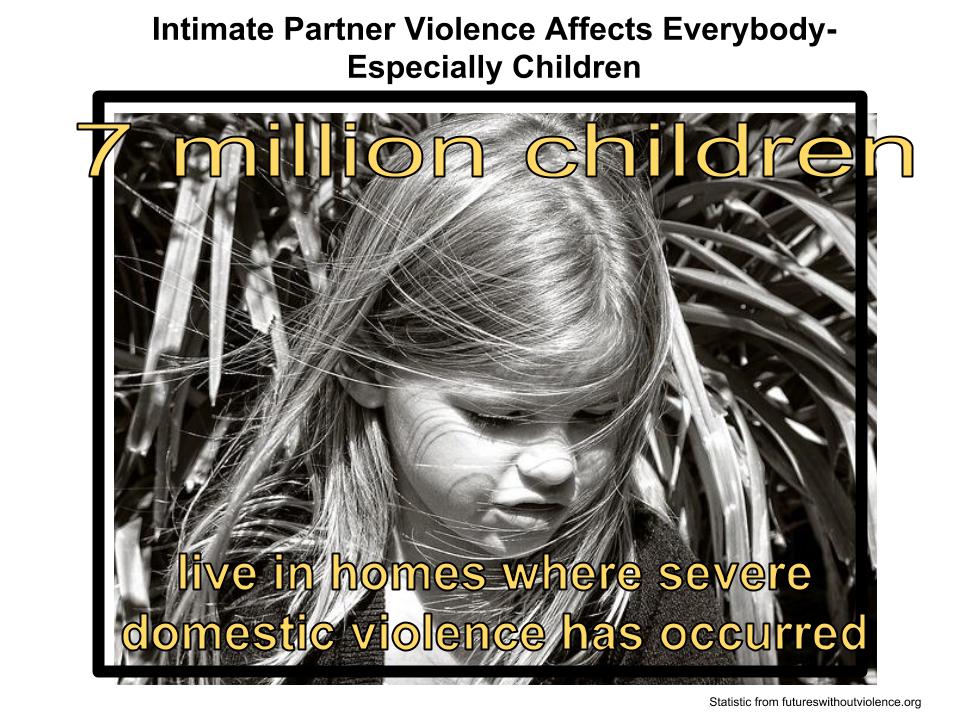|
By Sara Forcella, See the Triumph Contributor
There are a number of concerns for children who are raised where intimate partner violence (IPV) is present. Even if a child is not physically abused, there are typically severe consequences that coincide with witnessing a parent being abused. Children’s brains are continually developing; therefore, being in homes where IPV is present can be cognitively, behaviorally, developmentally and emotionally stunting. IPV affects children in a multitude of ways; the Child Welfare Information Gateway states that children who deal with violence at home face issues such as increased levels of anger and fear, poor social skills, poor relationships skills and a low self-esteem. Being raised in a home where partner violence is present can even be an indicator for future alcohol/drug abuse as well as juvenile delinquency. Witnessing violence between parents at a young age is also one of the main reasons that violent behavior is passed along from one generation to the next. Children who witness IPV in their homes, especially boys, are also more likely to be abusive to their own partners and children in the future (Source: The National Coalition Against Domestic Violence). Considering the negative effects that intimate partner violence has on children, our society needs to be aware that 7 million children live in homes where severe domestic violence has occurred (Source: futureswithoutviolence.org). This is an important statistic to remember, considering that 30-60 percent of perpetrators of IPV also abuse their children (Source: The National Coalition Against Domestic Violence). Even if a child is not being physically abused, witnessing the abuse, or simply seeing its aftermath is detrimental to children and is something that no child should have to worry about. All children deserve to live in a safe and healthy environment. If you suspect that a child is being abused or living in a home where domestic violence is occurring, please take the first step and report it to your local law enforcement or child protective services agency. Simply being aware and raising your voice can save a child’s life. Comments are closed.
|
Archives
July 2024
CategoriesAll About Intimate Partner Violence About Intimate Partner Violence Advocacy Ambassadors Children Churches College Campuses Cultural Issues Domestic Violence Awareness Month Financial Recovery How To Help A Friend Human Rights Human-rights Immigrants International Media Overcoming Past Abuse Overcoming-past-abuse Parenting Prevention Resources For Survivors Safe Relationships Following Abuse Schools Selfcare Self-care Sexual Assault Sexuality Social Justice Social-justice Stigma Supporting Survivors Survivor Quotes Survivor-quotes Survivor Stories Teen Dating Violence Trafficking Transformative-approaches |
Search by typing & pressing enter



 RSS Feed
RSS Feed